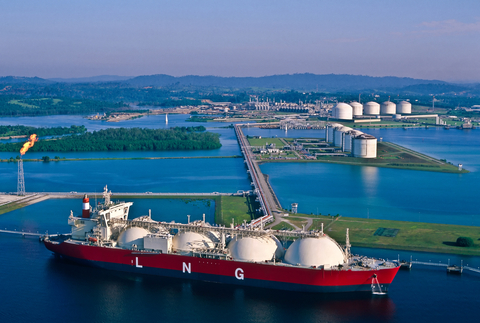Methaan elektrolyse kan de invoer van LNG/LPG decarboniseren en de klimaatdoelstellingen van de EU halen
BERLIJN–(BUSINESS WIRE)– Om tegen 2027 onafhankelijk te worden van de invoer van aardgas uit Rusland, verhoogt de Europese Unie de invoer op korte termijn van vloeibaar aardgas (LNG) of vloeibaar petroleumgas (LPG) uit de VS of Azerbeidzjan. Het belangrijkste element van LNG, methaan, is het tweede belangrijkste broeikasgas dat bijdraagt aan klimaatverandering. Milieuorganisaties waarschuwen dat langlopende leveringscontracten voor het fossiele LNG de Europese Green Deal zullen ondermijnen. Het Duitse bedrijf Graforce heeft een methaan elektrolyse technologie (plasmalyse) ontwikkeld die LNG of LPG gebruikt om waterstof en vaste koolstof te produceren voor dioxidevrije energieopwekking. Vergeleken met waterelektrolyse vereist plasmalyse slechts een vijfde van de energie om dezelfde hoeveelheid waterstof te produceren.
Methane Electrolysis Can Decarbonize LNG/LPG Imports and Achieve EU’s Climate Targets
BERLIN–(BUSINESS WIRE)– To become independent of Russian natural gas imports by 2027, the European Union is increasing near-term imports of US or Azerbaijan liquefied natural gas (LNG) or liquefied petroleum gas (LPG). The main element of LNG, methane, is the second leading greenhouse gas contributing to climate change. Environmental organizations warn that long-term supply contracts for the fossil LNG will undermine the European Green Deal. The German company Graforce has developed a methane electrolysis technology (plasmalysis) that uses LNG or LPG to produce hydrogen and solid carbon for dioxide-free energy generation. Compared to water electrolysis, plasmalysis requires only one fifth the energy to produce the same amount of hydrogen.

Graforce has developed methane electrolysis plants. Errected at LNG terminals or other decentralized locations, they can decarbonize energy supply, as LNG/LPG is not burned but converted into hydrogen and solid carbon by using green electricity. The company is currently expanding its strategic partnerships to quickly scale its hydrogen technology worldwide. (Photo: Business Wire)
Plasmalysis is an electro-chemical technology that converts incoming LNG/LPG into clean-burning hydrogen and solid, high-purity carbon. A high-frequency plasma field generated by renewable electricity splits energy-rich hydrocarbon compounds (10kWh/kg H2) into hydrogen and solid carbon. This can be sequestered long-term in steel, cement or for soil enhancement.
“The EU can still achieve its decarbonization targets if LNG or LPG is not burned but rather converted into hydrogen and solid carbon using green electricity and our hydrogen plants directly at the terminal or at decentralized locations,” said Dr. Jens Hanke, CTO of Graforce.
Graforce has already built two demo plants – in Berlin and Brandenburg. Three additional projects with renowned investors will be completed by the end of this year: a Methane Plasmalyzer® for decarbonizing natural gas and producing solid carbon in an Austrian refinery, and two for carbon dioxide-free heat and energy generation in a hotel and a 40,000 square meter urban district in Germany.
For the development and customer-specific scaling of its modular plants, Graforce works with global leaders in the fields of engineering, procurement, and construction. The company is currently in the process of expanding its strategic partnerships with financial as well as strategic investors to quickly scale its hydrogen technology worldwide.
About
The German company Graforce is the technology leader in sustainable solutions and carbon dioxide removal technologies. The power-to-X plants produce dioxide-free or -negative hydrogen and synthetic feedstocks – with the highest efficiency and lower infrastructure costs in the multi-megawatt range. Thus, Graforce decarbonizes fossil energies, industrial sectors and the heat, transport and building sectors. www.graforce.com/EN
Photos/Multimedia Gallery Available: https://www.businesswire.com/
Contacts
Graforce GmbH
Dr. Jens Hanke
Johann-Hittorf-Str. 8
12489 Berlin
Germany
Phone: +49 30 – 63 2222-110

